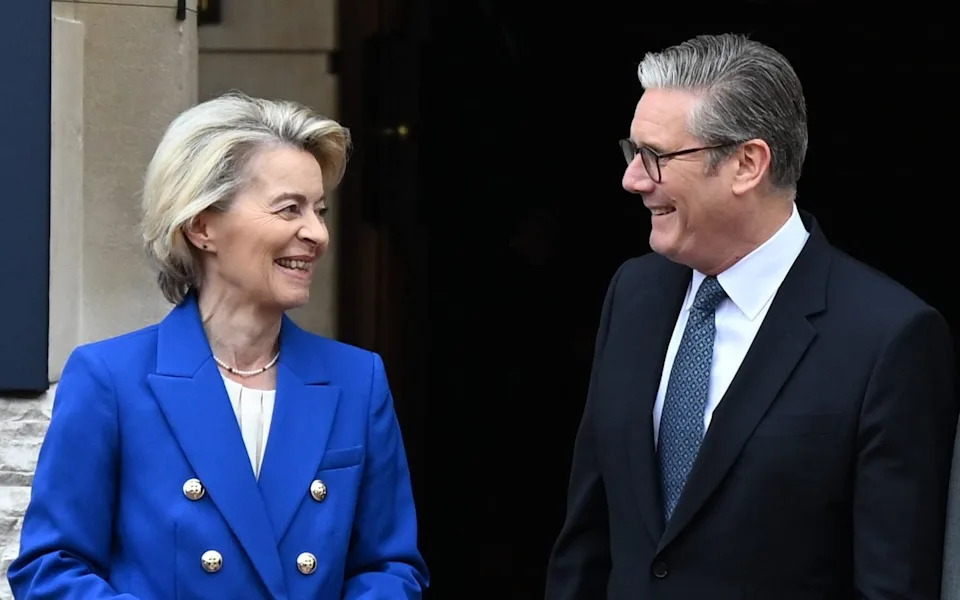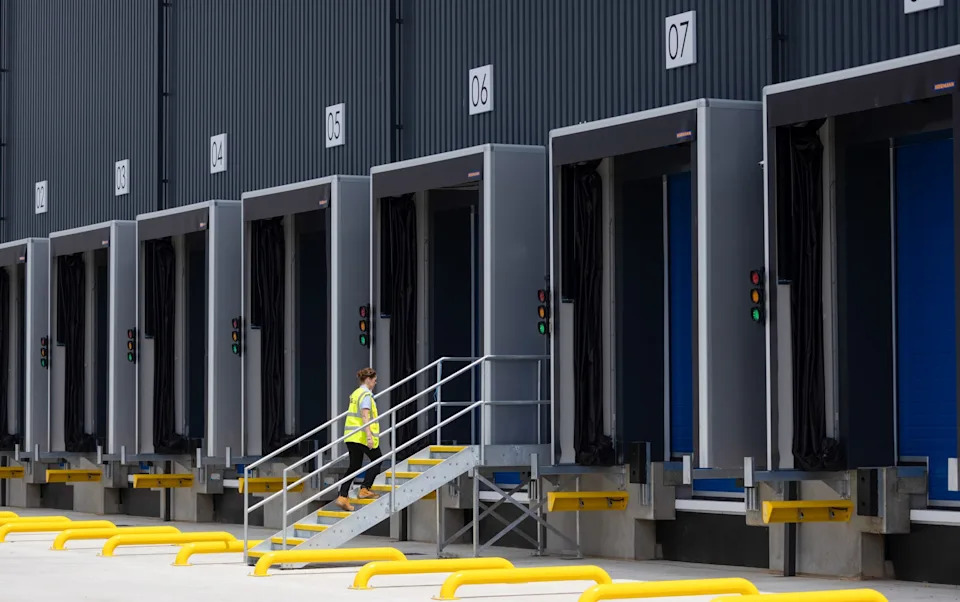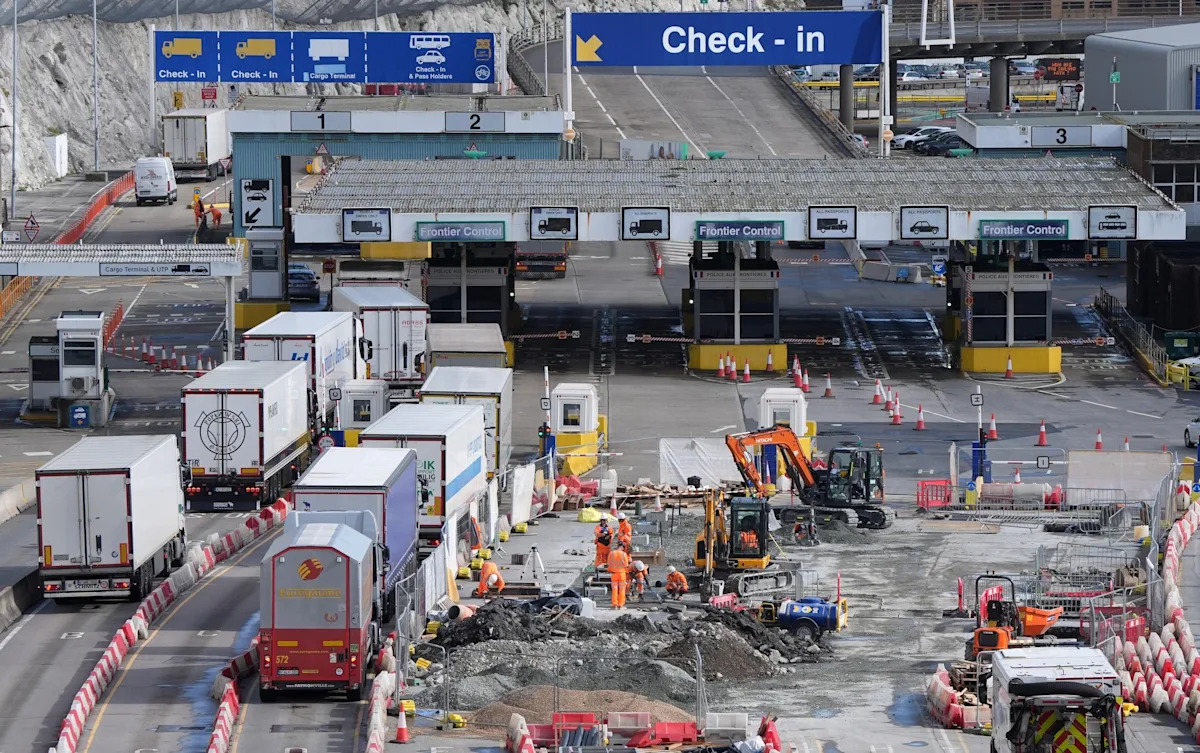Labour has been urged to refund port operators £120m for “white elephant” Brexit checkpoints after a watering down of border controls made them obsolete.
The Government said last week that checks on live animals imported from the EU would be dropped following the Brexit reset negotiated by Sir Keir Starmer.
Checks on fruit and vegetables such as tomatoes, grapes, plums, cherries, peaches and peppers were shelved in June, while frozen meat inspections are also expected to be abandoned.
But port operators said the changes meant more than 30 border control posts built at a cost of £300m in the wake of Brexit might be permanently idled.
Ports were compelled by the Government to shoulder a third of the expense of the border control posts, equivalent to about £120m. They say Labour should refund the money spent on the checkpoints.

Keir Starmer has overseen a Brexit reset which includes an end to checks on live animals imported from the EU – Rasid Necati Aslim/Anadolu via Getty Images
“Ports were forced to build this infrastructure on the understanding that they would recover the costs from charges on the people having their goods checked,” an industry source said:
“That is no longer going to happen. And in a worst-case scenario a small part of the building will still be needed and so you’ll have to keep the whole thing going but never pay it off.”
Even before the decision to formally abandon inspections, usage levels for the border posts were minimal as authorities soft-pedalled on checks to minimise disruption.
One new site in the port of Poole, spanning 2,000 square meters and installed at a cost of £2.3m, saw just two checks take place in eight months.
Portsmouth Council said in May that the Prime Minister’s trade deal had rendered its border post obsolete and that it might need to be scrapped despite receiving £6m from the city.
Richard Ballantyne, British Ports Association’s chief executive, said members had been left with the bill for facilities that were “set to become white elephants”.
He said: “Ports that have invested in border infrastructure need to know what the future holds for these facilities and whether the Government will provide financial support for their modification or demolition.”
Associated British Ports, which has built border control posts in Immingham, Hull and Plymouth, said that simply repurposing the buildings will not be straightforward.

Portsmouth Council said in May that the Prime Minister’s trade deal had rendered its border post obsolete – Jason Alden/Bloomberg
A spokesman said the posts have been constructed to exacting standards in terms of space, security and utilities, with inspection rooms that resemble operating theatres and cold rooms designed to house sample sizes of goods and therefore too small for bulk storage.
They said: “We keep being told by officials that they understand it’s a concern and recognise the unfortunate position that ports have ended up in. But there’s as yet been no move towards a meaningful dialogue about what we do about the situation.”
The Department for Environment, Food & Rural Affairs (Defra) said last week that checks on imports of live animals from the EU, and specific animal and plant goods from Ireland had been suspended ahead of the EU deal.
It said the dropping of inspections would help smooth agricultural trade, “cutting costs and red tape for businesses that export and import from the EU, reducing delays at the border, and making food trade with the UK’s biggest market cheaper and easier”.
Live animal inspections were due to be performed at specialist facilities in Sevington, serving Dover, and Holyhead, the busiest port for vehicle traffic to Ireland.
Mr Ballantyne said the move represented “another indication of the direction of travel in policy which means we are never going to need these new border facilities”.
The Cold Chain Federation said it expected checks on frozen meat, which are already in place, to be removed once final terms of the deal have been hammered out.
Britain last year imported 3,000 tonnes of fruit and veg from the EU, together with 1,300 tonnes of dairy produce, 1,100 tonnes of processed meat and live animals, and 3,400 tonnes of cereals.
Defra did not respond to a request for comment.
